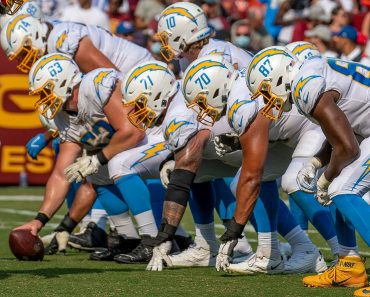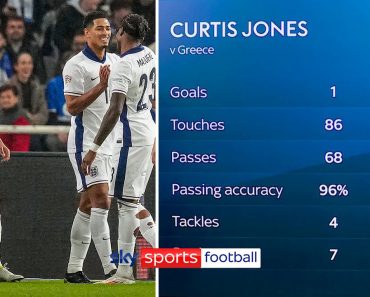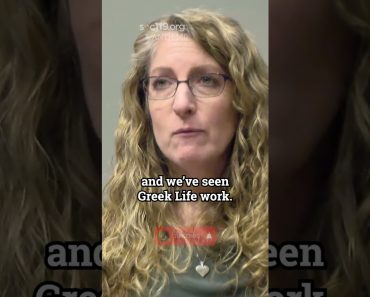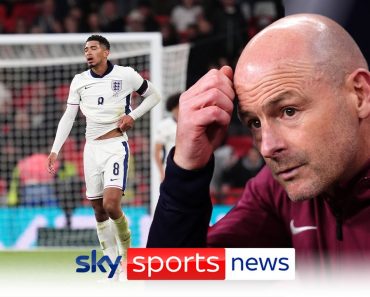ATHENS – The top sport in Greece – indeed in the whole world – is football… but that is what Americans call soccer, not the game that is the biggest sport in the United States and is huge in Canada, too. At a time when the world of American football was engrossed on the annual NFL draft, the Los Angeles Chargers, which are owned by Greek-American Dean Spanos, were focused on Dean’s dream, which he shared with his late, renowned father Alex Spanos: to bring the NFL to the Hellenic Homeland.
On Saturday, April 26, the Chargers were to make their precious third draft pick, and they were excited that the NFL gave them permission to announce the pick in Athens.
That weekend, a Charger delegation invited Greek journalists to the Grande Bretagne hotel to inform them of an initiative to promote their sport in Greece, and Chief of Staff and Counselor for the Chargers, Fred Maas, was visibly delighted both just to be in Greece, and also to make the pick there, which he said is potentially a great boost for Greek tourism given the huge TV and social media audience.

Most of all he is excited about the challenge to open a market for the NFL in Greece – the NFL has already done so in 21 other countries.
Maas explained that while Spanos wanted to be there, on draft weekend “he needed to be in LA to welcome the 10 new players that will be coming out of college” to the Chargers family.
About Greece, Mass said: “This is a truly amazing time and place for us. From the first time I met Mr. Spanos, over 20 years ago, he would always talk about his vision and dream of bringing… the game he loves… and the NFL to Greece… When the window opened… Dean jumped at the chance to come to Greece… and expose the game that he loves.”
Maas highlighted the longstanding and strong relationship Dean Spanos and his late father Alex Spanos had with Greece. His father was awarded the Greek Medal of Honor. They were very involved in relief efforts after the earthquake and fires and was instrumental in rebuilding the St. Nicholas Greek Orthodox Church and National Shrine at the World Trade Center with a crucial $10 million donation.
Regarding the new endeavor, he said that “we understand we will have to work hard to develop a fan base here… we want to work collaboratively with our partners, like the NBA and others that are here as well as our Greek partners.”
In addition to the need to explain and endear a very different game to Greeks devoted to soccer and basketball, there are practical matters – the fact that many games are played at 2 or 3 AM not least among them. Maas said, “we have met with folks who have the broadcast rights about how to… show taped telecasts of the games.”
The key word in their strategy is ‘fun’. Developing a football culture will include events like ‘watch parties’ that “will reproduce some of the excitement and fun of the NFL.”
He stressed that “we want to start small” – with an emphasis on youth camps – “and make it fun for them and their parents. There’s no better way to expose a country to the NFL than to start with youth sports and youth football… There are now millions of kids around the world playing flag football” – a non-contact version of the sport – “outside the U.S. – two million in Mexico, 200,000 in China.”
During the question and answer period, he noted they will reach out to schools and that they have the various international schools on their radar, especially those with ties to the U.S.
Regarding the approach to the youth of Greece, Mass said that “the formula is universal… it’s worked around the world, in Mexico, and China etc. The question is how do you make it fun, how do you bring something that is different to them and is worthy of their time.”
He said the camps will not be about drilling football strategy into them, but making it fun and showing what the sport has to offer.
Maas was delighted to be “in the veritable birthplace of sports – often citing the village of Marathon, the birthplace of the revered sports event by that name, and, of course, the Olympic games. They are thrilled flag football will be an official sport for the first time at the 2028 Olympics in Los Angeles.
“It’s going to be difficult to field a Greek team for the ’28 Olympics, but… we can build for a future Olympics.”
He explained the issues involved in playing an NFL game in Greece – but that is part of the dream.
Also present was world-famous ultramarathoner Dean Karnazes, who moved to Greece last year. “I grew up in California, playing flag football; my son played football. I want to support the Chargers’ initiative – and the Spanos family is a great Greek family.”
He was just appointed Ambassador of the municipality of Marathon and said: “I will be working diligently to promote it as the birthplace of the Marathon” and to advance sports tourism in Greece. It was noted that most Americans don’t realize Marathon is an actual place. “I’ve done a lot to educate people, working with the press and my social media. There is no sport with the legend of the Marathon,” he said.







